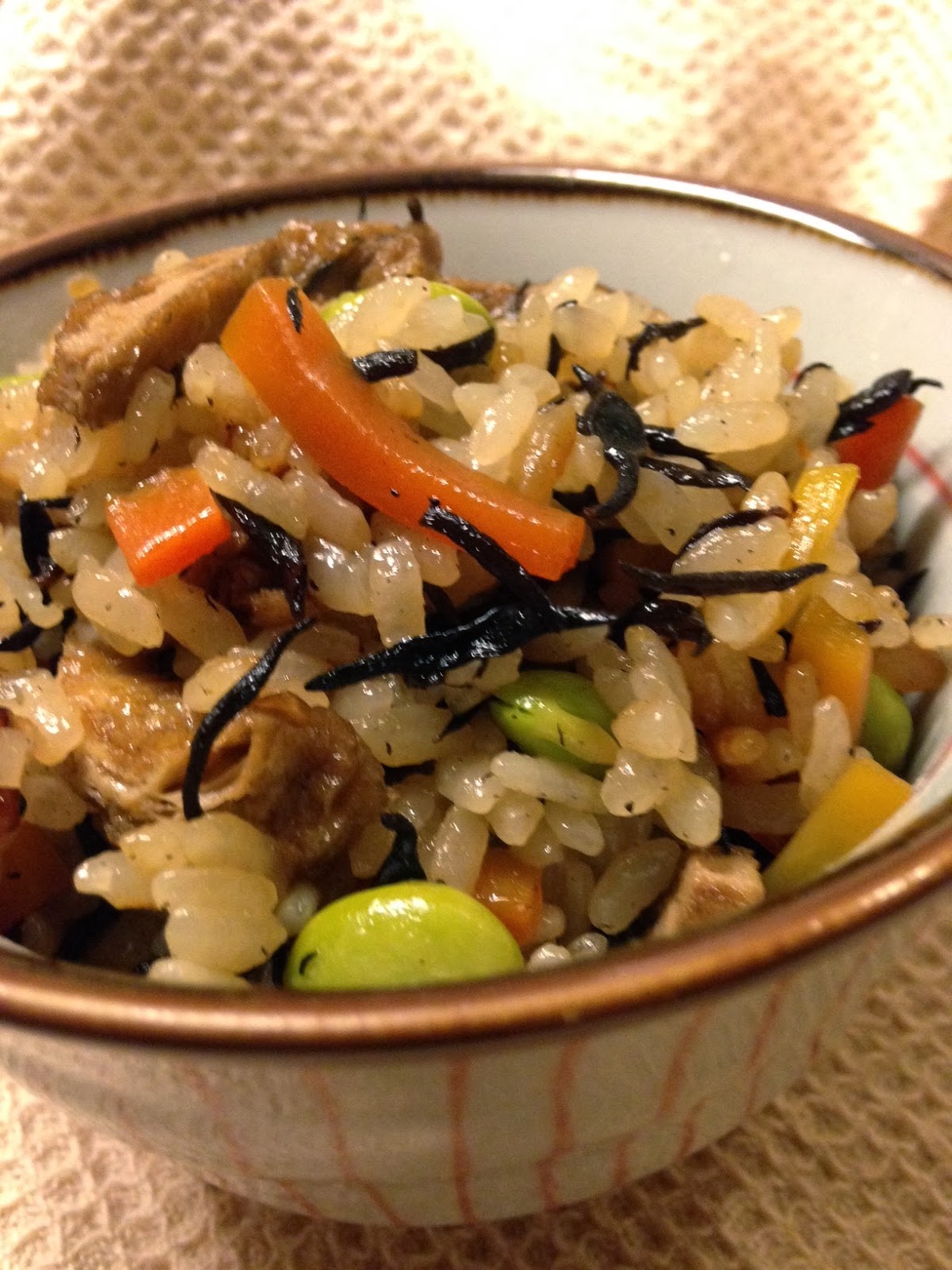Nasu no nimono - Simmered eggplant
According to a Japanese cookbook I have, "eggplant tastes good with oil." So true. There are a few variations on this classic dish but the one that tastes best to me involves deep frying the eggplant for a couple of minutes before simmering it. The extra step might seem "mendokusai" (bothersome), but it really doesn't take much time and, in any case, it's worth it! Frying brings out the flavor, and simmering both softens the eggplant and reduces the grease. This is a dish that you see a lot in summer served cold but, I like eating it hot in early spring while there's still a chill in the air. Top with grated ginger for a hint of heat, and daikon to cleanse the palate.
Serves 4
Time: 20 minutes
4 Japanese eggplants
2 cm round of daikon
oil for deep frying
For simmering stock:
1 1/2 cups dashi
1 1/2 tbsp. shoyu
2 tbsp. mirin
1 tbsp. sugar
Wash the eggplants and cut in half, lengthwise. Score the skin of the eggplant, cutting on the diagonal. You don't need to cut too deep, in fact, I would avoid this as the eggplant will fall apart when you're cooking it.
Pour about 3 cm of oil (I like using grapeseed, but any vegetable oil will do) into a large fry pan. Ideally 180 degrees is what the oil should be at; hot enough that it sizzles. Take care the oil doesn't get too hot because it will burn the outside and leave the inside of the eggplant raw. Cook it flesh side down for 2 minutes, then flip and cook for another 2 minutes. Fry in batches to avoid crowding the pan. When done, remove from the oil and let rest on a paper towel to soak up some of the oil while you prepare the stock.
Heat all the ingredients for the stock up to just below boiling. Managing the boil helps to keep the eggplant from breaking or turning into mush. Add the eggplant and simmer gently for about 10 minutes (You can do this in batches too if you have a small pot.).
While they simmer, grate the daikon and the ginger, squeezing out the water until you have a flaky consistency. Finely slice some negi. When the eggplants are done cooking, transfer them quickly to a dish. Pour a little stock over them and top with a daikon-ginger "snowball" and a little negi.


Comments
Post a Comment